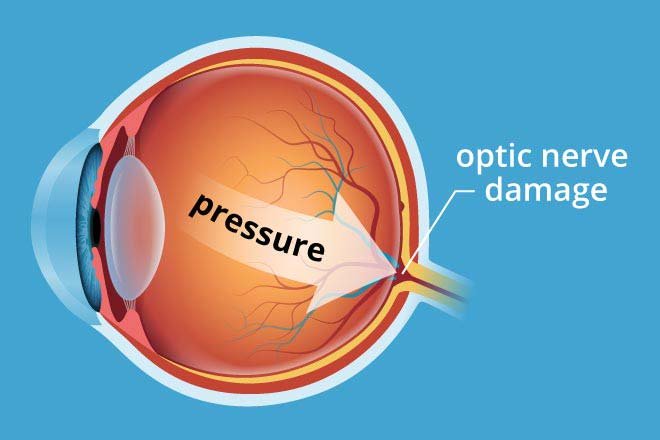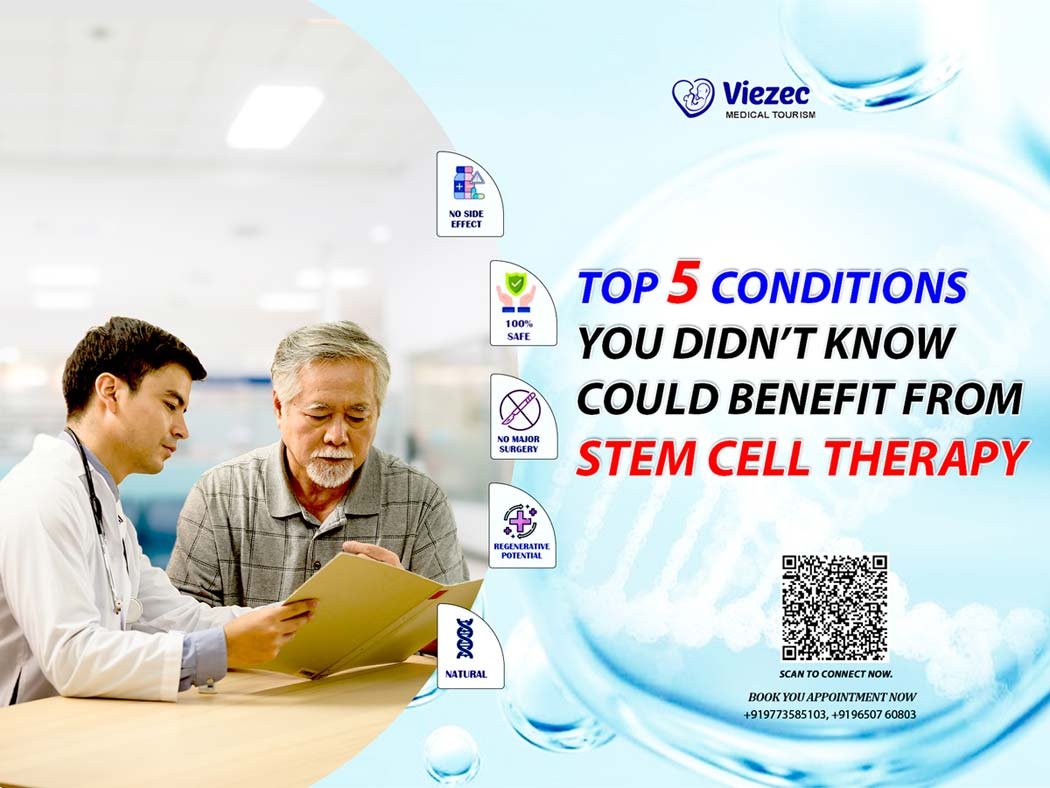Stem cell therapy is often discussed as a promising option for managing complex medical conditions, from orthopedic injuries to degenerative disorders. Yet one of the most common questions patients ask is why the cost of stem cell therapy differs so widely between clinics, countries, and even patients with the same condition. Some treatment plans appear affordable, while others seem significantly more expensive, creating confusion and uncertainty.
Understanding why stem cell therapy costs vary is essential for making an informed decision. Pricing is influenced by medical, scientific, regulatory, and logistical factors, not by a single fixed rate. Each treatment plan is tailored to the patient, and that personalization directly affects cost.
This guide explains the key factors that influence stem cell therapy pricing, how to evaluate value rather than just price, and what patients should know before comparing treatment options.
Understanding the Nature of Stem Cell Therapy
Stem cell therapy is not a standardized, one-size-fits-all procedure. It involves collecting, processing, and delivering living cells with the goal of supporting tissue repair or functional improvement. The complexity of working with biological material alone introduces variability in cost.
Unlike conventional treatments, stem cell therapy depends on factors such as the source of cells, laboratory processing methods, clinical expertise, and patient-specific medical needs. Each step in the process carries its own cost implications, and even small differences can lead to large price variations.
Type of Stem Cells Used
One of the most important factors affecting stem cell therapy cost is the type of stem cells used in the treatment.
Autologous Stem Cell Therapy
Autologous stem cell therapy uses cells harvested from the patient’s own body, commonly from bone marrow or adipose tissue. While this approach avoids immune rejection concerns, it involves additional steps such as harvesting procedures, anesthesia, and individualized processing.
These steps increase labor and procedural complexity, which can raise overall costs. However, many patients value the personalized nature of autologous therapy.
Allogeneic Stem Cell Therapy
Allogeneic stem cell therapy uses donor-derived cells, such as umbilical cord–derived mesenchymal stem cells. These cells are processed, screened, and preserved in advance, which shifts costs toward donor screening, storage, and regulatory compliance.
The price of allogeneic stem cell therapy often reflects strict quality control, ethical sourcing, and advanced laboratory infrastructure.
Source of Stem Cells
The origin of stem cells significantly influences treatment pricing.
-
Bone marrow–derived stem cells require specialized harvesting techniques and trained clinicians.
-
Adipose-derived stem cells involve liposuction-like procedures and advanced processing.
-
Umbilical cord stem cells require donor consent, screening, and cryopreservation facilities.
Each source has different processing requirements, safety protocols, and regulatory obligations, all of which affect cost.
Discover if Stem Cell Therapy Can Help You!
Book a Free Consultation with Our Experts at Viezec !
Medical Condition Being Treated
Stem cell therapy cost varies widely depending on the condition being treated. Orthopedic conditions such as knee arthritis often require localized injections, while neurological or spinal conditions may need more complex protocols.
Factors that increase cost include:
-
Severity and stage of the condition
-
Number of joints or areas treated
-
Need for image-guided injections
-
Requirement for supportive therapies or rehabilitation
A treatment plan for a single joint injury is very different from a multi-system degenerative condition, and pricing reflects that difference.
Number of Stem Cells and Dosage
The quantity of stem cells used in therapy is another major cost driver. Higher cell counts often require more extensive harvesting, processing, and quality testing.
Dosage is determined by:
-
Patient weight and age
-
Nature of the condition
-
Clinical goals of treatment
More cells do not automatically mean better outcomes, but appropriate dosing is critical. Clinics that follow standardized dosing protocols may appear more expensive because they invest in precise cell quantification and quality control.
Laboratory Processing and Technology
Stem cell processing is one of the most resource-intensive components of therapy.
Advanced laboratories follow strict protocols for:
-
Cell isolation
-
Sterility testing
-
Viability assessment
-
Quality assurance
Clinics that use GMP-compliant laboratories incur higher costs due to regulatory standards, trained personnel, and specialized equipment. These costs are often reflected in treatment pricing but also contribute to safety and consistency.
Regulatory Compliance and Ethical Standards
Regulatory compliance plays a critical role in stem cell therapy pricing. Clinics that adhere to national and international guidelines must invest in documentation, audits, and quality systems.
Ethical stem cell sourcing, informed consent processes, and traceability of biological material add layers of responsibility that affect cost. Lower prices may sometimes indicate shortcuts in compliance, which can increase risk for patients.
Physician Expertise and Clinical Team
The experience and qualifications of the medical team directly influence stem cell therapy cost.
Highly trained stem cell specialists often:
-
Spend more time on patient evaluation
-
Design individualized treatment protocols
-
Use image guidance for precise delivery
-
Monitor outcomes and adjust follow-up care
These factors contribute to higher professional fees but also improve treatment planning and safety.
Start Your Regenerative Journey Today!
Contact Viezec for Personalized Stem Cell Therapy Plan
Diagnostic Testing and Pre-Treatment Evaluation
Before stem cell therapy begins, patients typically undergo diagnostic assessments such as imaging, blood tests, or functional evaluations.
These tests help determine:
-
Suitability for stem cell therapy
-
Optimal cell source and dosage
-
Potential risks or contraindications
Comprehensive pre-treatment evaluation adds to the overall cost but reduces uncertainty and improves treatment accuracy.
Procedure Setting and Infrastructure
The environment in which stem cell therapy is performed also affects pricing.
-
Hospital-based procedures may involve higher infrastructure and staffing costs.
-
Specialized regenerative medicine clinics invest in sterile environments, imaging tools, and monitoring equipment.
Facilities with advanced infrastructure often charge more, reflecting their operational expenses and safety standards.
Aftercare, Follow-Up, and Rehabilitation
Stem cell therapy does not end with the procedure itself. Post-treatment care can include follow-up visits, rehabilitation programs, or additional supportive therapies.
Some clinics include aftercare in their pricing, while others charge separately. Understanding what is included helps patients compare costs more accurately.
Geographic Location and Market Factors
Location plays a significant role in stem cell therapy cost variation.
Cost Differences by Country
Stem cell therapy costs vary widely across countries due to differences in:
-
Healthcare infrastructure
-
Labor costs
-
Regulatory requirements
-
Medical tourism demand
In India, stem cell therapy is often more affordable compared to Western countries, while still offering access to skilled clinicians and modern facilities. This has made India a destination for patients seeking cost-effective regenerative medicine options.
Organizations like Viezec, based in India, focus on connecting patients with transparent, evidence-based stem cell therapy options while emphasizing ethical standards and patient education.
Customization and Personalized Treatment Plans
One of the defining features of stem cell therapy is personalization. Each patient’s biology, medical history, and treatment goals shape the therapy plan.
Customization increases cost variability because:
-
No two treatment plans are identical
-
Processing and dosing differ between patients
-
Follow-up needs vary
Personalized care improves relevance and potential outcomes but makes fixed pricing impractical.
Understanding Value Versus Price
When evaluating stem cell therapy options, focusing solely on the lowest price can be misleading. Value includes safety, expertise, transparency, and appropriateness of care.
Questions patients should consider:
-
Are treatment protocols clearly explained?
-
Is pricing transparent and itemized?
-
Are risks and limitations discussed honestly?
-
Is the clinic compliant with regulations?
Higher cost does not automatically guarantee better outcomes, but unusually low prices should prompt careful evaluation.
Research, Innovation, and Evidence-Based Practice
Clinics that invest in ongoing research, data collection, and protocol refinement often have higher operational costs. These investments support evidence-based practice and continuous improvement.
While research-driven clinics may charge more, they often provide clearer treatment rationale, outcome tracking, and transparency.
Insurance Coverage and Payment Considerations
In most regions, stem cell therapy is not fully covered by insurance, especially for emerging or investigational applications. Out-of-pocket payment is common, which makes understanding cost drivers even more important.
Some providers offer structured treatment packages or phased payment plans. Clear communication about costs upfront helps avoid unexpected expenses.
How to Compare Stem Cell Therapy Costs Responsibly
To compare stem cell therapy pricing effectively, patients should:
-
Compare treatment scope, not just price
-
Ask about cell source, dosage, and processing
-
Understand what is included in aftercare
-
Evaluate clinic credentials and compliance
Transparent providers explain why their costs are structured a certain way rather than offering vague estimates.
The Role of Patient Education
Well-informed patients are better equipped to make decisions that align with their health goals and financial considerations. Educational resources that explain cost variation empower patients to ask meaningful questions.
At Viezec, patient education is emphasized as part of the decision-making process, helping individuals understand treatment pathways, pricing factors, and realistic expectations before proceeding.
Is Your Condition Eligible for Stem Cell Therapy?
Speak directly with our specialist.
Common Myths About Stem Cell Therapy Costs
Myth 1: Higher Cost Always Means Better Results
Cost reflects many factors, including infrastructure and compliance, but outcomes depend on suitability and proper application.
Myth 2: All Stem Cell Therapies Should Cost the Same
Variability is inherent due to personalization, technology, and condition complexity.
Myth 3: Low-Cost Treatment Is Always a Better Deal
Low prices may exclude critical components such as follow-up care or quality testing.
Making an Informed Decision
Stem cell therapy represents a complex intersection of medicine, science, and individualized care. Cost variation is not arbitrary but reflects real differences in treatment design, safety measures, and expertise.
Patients who understand why stem cell therapy costs vary are better positioned to evaluate options, set realistic expectations, and choose providers that align with their medical needs and values.
Working with transparent platforms and knowledgeable medical teams helps ensure that cost discussions are grounded in clarity rather than confusion. Providers and facilitators such as Viezec aim to bridge that gap by focusing on ethical practices, informed consent, and patient-centered guidance.
Frequently Asked Questions
Stem cell therapy costs vary because treatment plans are personalized. Factors include the type and source of stem cells, the medical condition being treated, laboratory processing standards, physician expertise, and aftercare requirements.
Stem cell therapy cost in India depends on the condition, number of cells used, and treatment complexity. Prices are generally lower than in many Western countries due to healthcare infrastructure and operational costs, while maintaining modern medical standards.
Yes. Autologous stem cell therapy often costs more due to harvesting and individualized processing. Allogeneic stem cell therapy includes donor screening, storage, and compliance costs, which also impact pricing.
Higher cost does not automatically mean better results. Price often reflects safety standards, laboratory quality, and expertise. Patients should focus on treatment suitability, transparency, and regulatory compliance rather than cost alone.
In most cases, stem cell therapy is not fully covered by insurance, especially for emerging or investigational uses. Patients usually pay out of pocket, making it important to understand what is included in the treatment cost.
Final Thoughts
Stem cell therapy costs vary because the therapy itself is highly personalized, scientifically complex, and regulated. Factors such as cell type, medical condition, laboratory standards, clinical expertise, and location all play a role.
Rather than searching for a single price, patients benefit from understanding the elements behind the cost. Informed decisions lead to safer experiences, better alignment with treatment goals, and greater confidence in the care journey.









